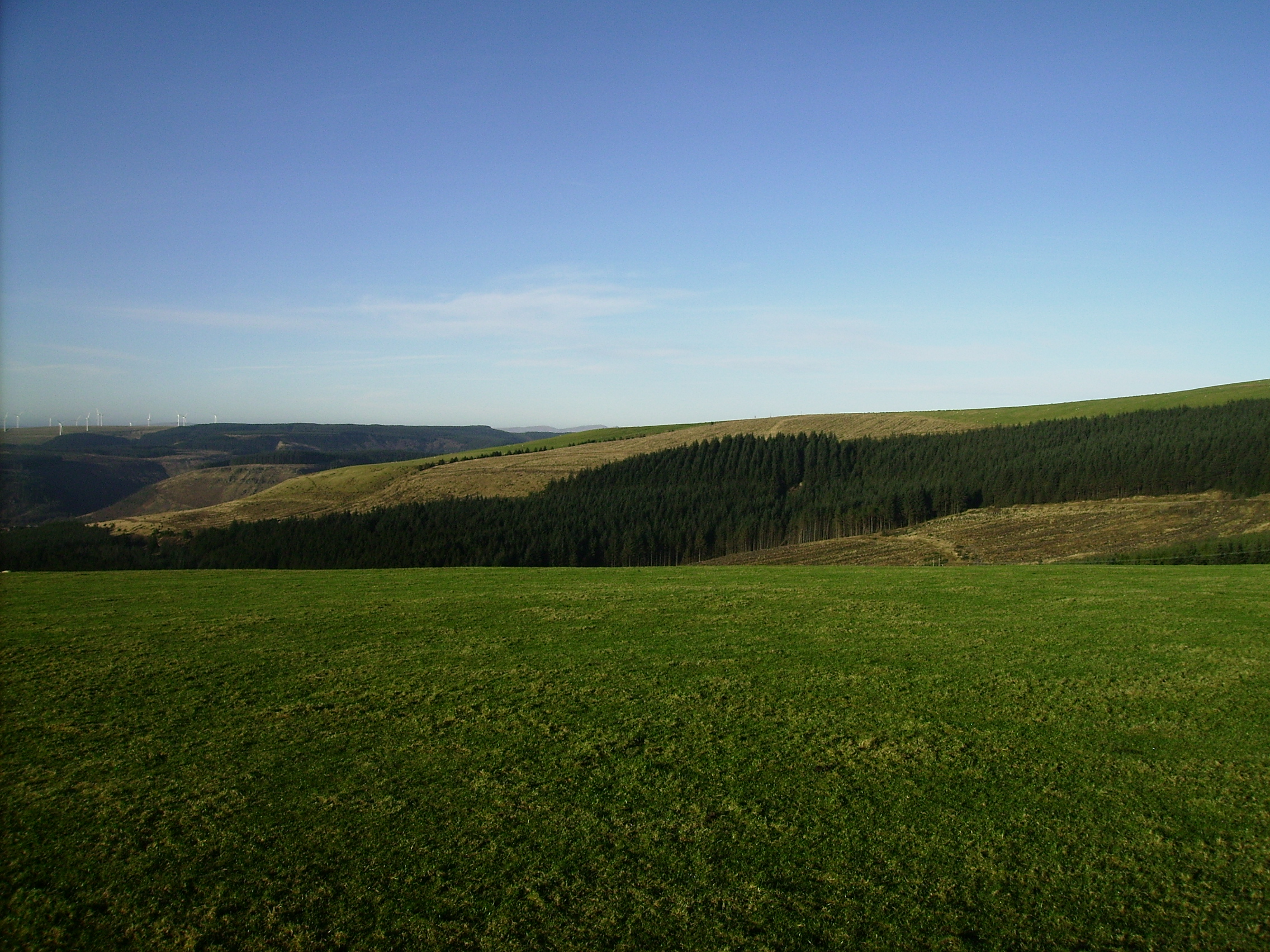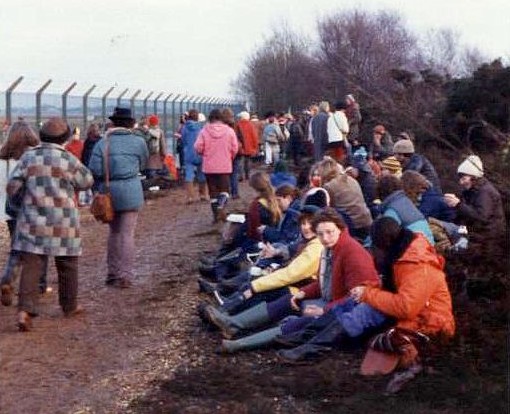Say no to nuclear in Cwm Llynfi
Published: 10 Jul 2025

Residents, activists and organisations across Wales are coming together to campaign against a proposal to install new nuclear power stations in a south Wales valley.
The struggle to protect Wales from the dangers of nuclear is one that has been fought by communities for decades.
Activists persuaded every county council in Wales to declare themselves “Nuclear Free Zones” in the 80s, marched to Greenham common to protest against the siting of guided nuclear missiles at the RAF base, and rallied against the redevelopment of Wylfa nuclear power station.
As this piece by CND Cymru illustrates, every so often the "nuclear' threat rears its ugly head, calling the local community back to the frontline to stand up for the safety of their health and environment.
And that fight continues to this day.

The proposal
Community activists from Cwm Llynfi near Maesteg got in touch at the end of last year to ask for support to build a campaign against a threat to build four Small Modular Reactors (SMRs) in the valley.
The proposal is from Last Energy, an American company, which hasn’t to date installed any Small Modular Reactors anywhere in the world.
Last Energy is carrying out community engagement at the time of writing (May 2025), and judging by the fact that they have started the Development of National Significance (DNS) process with Planning and Environment Decisions Wales (PEDW), we can expect to see a full planning application by February 2026.
Local residents, CND Cymru activists, Green Party activists, and Nuclear Free Local Authorities have joined forces to campaign against this proposal to build this new and relatively untested technology.
If this proposal is allowed to go ahead it threatens our health, our environment and our communities for generations to come.
Here are 4 reasons why building a small scale modular nuclear reactor is such a bad idea.
1. It's not Safe
Nuclear power has been found to be dangerous to our health and our environment. Radiation is toxic and causes cancer. The KiKK study in Germany found a 120% increase in leukaemia’s in children living within 5km of nuclear power plants.
Nuclear accidents have a widespread and long-lasting impact. Produce from Welsh farms affected by radiation from Chernobyl, carried over 2000 miles by the wind, had to be tested for 25 years after the accident. After the Fukushima accident, over 80,000 people were evacuated and many towns remain as no-go areas - and will still be unsafe for habitation in 100 years time.
Small modular nuclear reactors, the type of reactor that Last Energy are proposing to build, is a new, and therefore relatively untested, technology. As of 2024 only Russia and China have built operational SMRs, so their risks and impact on our health and environment are not yet known.
2. It's not clean
I’m sure we’ve all heard the myth “nuclear is green energy”. This narrative gets spouted by governments and nuclear developers to greenwash their support for an energy source that evidence proves harms us and our environment.
Nuclear power produces radioactive waste that’s dangerous for people and wildlife and lasts for thousands of years - Wales stopped monitoring for radiation in sheep following the Chernobyl nuclear disaster in 2012. 26 years after the accident.
If it isn’t disposed of or managed properly, the risks include contaminated groundwater and radiation exposure, which can have long-term implications for our health. Decades after the first nuclear power station opened in the UK, we don’t have safe storage for nuclear waste. Building a new nuclear power station in Cwm Llynfi will increase the amount of radioactive waste we have to deal with.
Uranium mining is a very dirty - and carbon intensive – business that leaves land and water sources contaminated by radioactive material and toxic metals. Uranium mines also threaten the lives and cultures of indigenous people and in Canada is forcing Dene and Cree people from their homes. You can read more about this here.
An energy source that has such a detrimental impact on communities in other countries is not something a 'globally responsible' Wales should be pursuing.
3. It's expensive
Builders of nuclear power stations claim they've learned the lessons from the past and that nuclear will mean cheap. Yet the cost of nuclear generated electricity continues to rise, while the cost of renewable energy continues to fall.
Electricity from Hinkley Point C will cost us over £130 / MWh - guaranteed and index linked for 35 years - but new off-shore wind energy costs under £44 / MWh.
Decommissioning is a long and costly process. Welsh communities have been left before with the clean up costs of private companies.
The focus now should be on renewables and community owned energy to produce green, clean and cheap energy for everyone.
4. It's not needed
Wales is blessed with natural resources, so we are able to produce all the power we need.
Already we're an exporter of energy. We produce more than 50% of our electricity demand from renewables, and we have a commitment to meet 100% of our demand through renewables by 2035. Tidal, hydro, solar, on-shore and off-shore wind, together with energy efficiency, can produce all the electricity that we need - now and in the future. We do not need nuclear energy.
We have the technology to deliver green, renewable and safe electricity in Wales.
Support the campaign and help us stop nuclear power in Cwm Llynfi by signing this petition;
If you’d like to be involved in the campaign, email No Nuclear Llynfi at [email protected]

